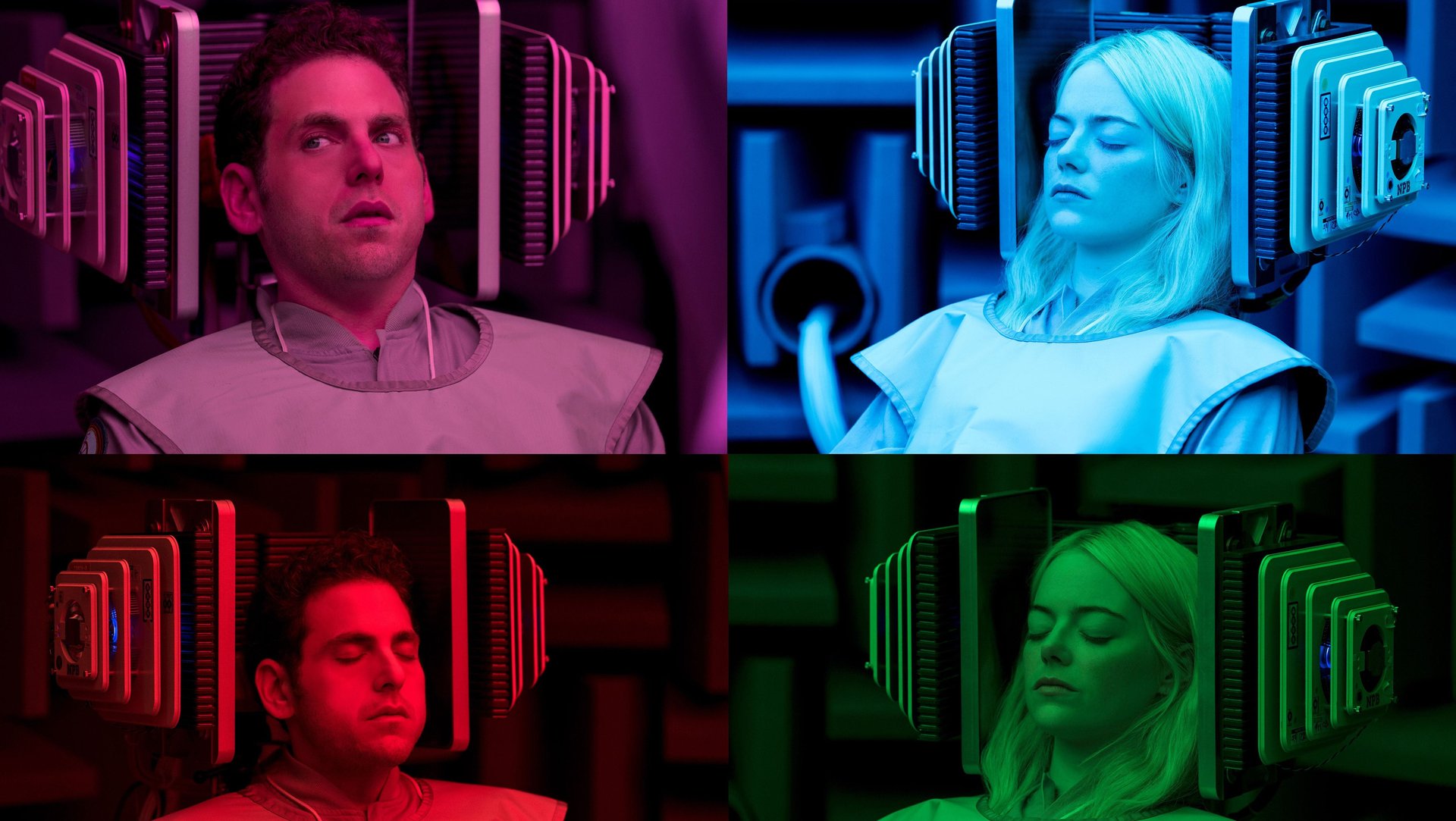Netflix’s trippy series ”Maniac” asks if the human mind can be fixed
One of Hollywood’s favorite places to explore nowadays is the human mind.


One of Hollywood’s favorite places to explore nowadays is the human mind.
First there was Eternal Sunshine of the Spotless Mind, Charlie Kaufman’s cult hit that probed the nature of memory. Then there was Inception, the sci-fi blockbuster by Christopher Nolan that journeyed to the center of man’s subconscious. Most recently, there was Legion, the FX series about a mutant diagnosed with schizophrenia that largely plays out within characters’ minds.
And now there is Maniac, a star-studded TV series coming soon to Netflix that promises to add another layer to the burgeoning inner-mind thriller genre.
Based in part on a Norwegian series of the same name, Maniac stars Hollywood film actors Jonah Hill and Emma Stone as two lost souls who take part in a mysterious pharmaceutical trial under the direction of one “Dr. James K. Mantleray” (The Leftovers‘ Justin Theroux).
“Once you begin to appreciate the structure of the mind, there’s no reason to believe that anything about us can’t be changed,” Mantleray intones in the new trailer for the Netflix series. “Pain can be destroyed. The mind can be solved.”
The rest of the trailer looks like a thrillingly bizarre mashup of Mulholland Drive and Black Mirror (another mind-bending sci-fi series on Netflix). All 10 episodes were directed by Cary Joji Fukunaga, who helmed the entire first season of HBO’s True Detective as well as the critically acclaimed Netflix film Beasts of No Nation.
Films and shows that explore the inner recesses of the mind are perfect pop-culture fodder for this moment. It’s the type of entertainment that makes message boards, Twitter conversations, and Reddit threads go crazy with theories and in-depth breakdowns.
As the outside world has become harder to parse, entertainment has looked inward at the self, investigating the mind to figure out what really makes us tick. Black Mirror has devoted several episodes to this, including “White Christmas,” “San Junipero,” and most recently “USS Callister,” the wonderful Star Trek parody that takes place almost entirely in a simulated reality. It’s probably not a surprise that these are some of the anthology show’s best episodes—it turns out stories about the human psyche are fascinating to watch. That much is clear even to the Netflix computer algorithm.